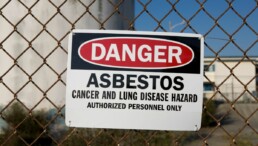Shepard O’Donnell Named a Top-Tier Personal Injury Law Firm by Best Lawyers® “Best Law Firms” 2025
Shepard O’Donnell, one of the top asbestos personal injury law firms in Massachusetts for 26 years, received top-tier designation in the Best Lawyers® “Best Law Firms” 2025 edition. For the third year in a row, the firm was ranked “Tier 1” in personal injury litigation and was highly rated in mass tort litigation and class actions. Law firms included in the “Best Law Firms” rankings are recognized for professional excellence and consistently strong ratings from clients and peers. Below are the firm’s complete rankings.
Metropolitan Tier 1 (Boston)
- Personal Injury Litigation – Plaintiffs
Metropolitan Tier 3 (Boston)
- Mass Tort Litigation / Class Actions – Plaintiffs
The Best Lawyers “Best Law Firms” rankings are determined by an exhaustive evaluation process that includes the collection of client and lawyer evaluations, peer review from leading attorneys in their field and review of additional information provided by law firms as part of the formal submission process. To be eligible for a ranking in a particular practice area and metro region, a law firm must have at least one lawyer included in Best Lawyers in that particular practice area and metro.
What Are Some Common Emotions Experienced by Physician Sex Abuse Survivors?
The road to healing for survivors of physician sexual assault is long and difficult, and no two experiences are the same. Although no one can truly understand your experience in the way that you do, in our time working with survivors of physician sexual abuse, we’ve learned about some of the primary emotional hurdles survivors experience. We’ve worked with alleged victims of Dr. Derrick Todd as well as those allegedly abused as children by pediatrician Dr. Richard Kauff. We know that it takes an immense amount of courage to seek legal counsel and we understand that not everyone is ready to take that step. No one who has been sexually abused or assaulted is to blame and perpetrators, especially those in a position of trust, should be held responsible. While the emotions outlined below may not mirror your own, we understand the complex and difficult emotional journey survivors face.
A Difficult Journey to Healing
Sexual assault is never the survivor’s fault.
Nevertheless, survivors are often embarrassed to acknowledge that this terrible crime was committed against them, fearing judgment from those around them. They may feel they won’t be believed, especially if the crime occurred many years ago, as in the case of some pediatric abuse cases. They may also feel ashamed and wonder how they could have “let it happen.” And yet, the inherent imbalance of power in a doctor/patient relationship makes it very difficult for a patient to know whether what the doctor was doing was actually a normal part of the examination, as they asserted it was.
These complicated emotions are especially true for children, most of whom do not have the capacity to recognize that certain behaviors are, in fact, abusive. It can be extremely difficult for children to identify sexual abuse in a doctor’s office where part of a routine physical examination requires them to remove their clothing. Children cannot be expected to understand when aspects of an examination cross a line. Even if they suspected something was not right, as children, they likely would not have been able to articulate exactly what happened or advocate for themselves sufficiently. They may also feel that adults wouldn’t believe them.
This fear of not being believed, even as adults, is sometimes compounded by the fear of being ostracized or judged by friends, family, or even colleagues when they learn of what happened to them when they were so little. Victim-shaming is a profoundly damaging reality and unfairly shifts the burden of responsibility from the perpetrator to the victim. Addressing victim-shaming requires a shift towards understanding, empathy, and support for survivors, focusing on holding perpetrators accountable and creating environments where individuals feel safe and validated in sharing their experiences.
Survivors of childhood physician sexual abuse can also experience feelings of guilt, wrongly assuming that they somehow encouraged or allowed this behavior. They may resist coming forward with their story because they don’t want to upset a parent or caregiver, especially if other family members were patients of the same doctor. Although there is nothing they could have done to prevent the behavior, they may feel that they should have done something to protect a sibling. The same is true for parents who were unable to protect their children from the abuse. As in the case of Dr. Kauff, parents were often in the room at the time of the abuse and may feel tremendous guilt and shame at not having understood what was happening. Unfortunately, this alleged predator managed to hide his actions through deceit and lies.
Some victims feel a sort of ambivalence, not fully acknowledging or understanding the trauma inflicted on them when they were so young. This, too, is normal, though working through past traumatic experiences can sometimes lead to enlightening self-discovery. Adult survivors of childhood physician sexual abuse often experience “white-coat syndrome,” which is a deep-seated fear of going to the doctor. They may engage in negative or inappropriate relationships, or have difficulty with emotional and sexual intimacy. Others may struggle with a range of mental health issues, including depression, post traumatic stress disorder, eating disorders or addiction that prevent them from sharing their experience. Better understanding the past sometimes leads survivors to better understand some of the life choices they’ve made, allowing them to move forward in a positive direction.
Anger is, understandably, a large part of the emotional journey of a survivor of childhood sexual abuse by a physician. Individuals wonder how those around them could have let this happen and anger directed towards a parent or caregiver can damage family relationships. More common, however, is the justifiable anger directed at the offending doctor and the institutions that failed to protect victims from a dangerous predator. That anger can be usefully channeled into seeking justice for the crimes that have been committed against them.
Hospitals and Clinics Should Also Be Held Responsible
Hospitals, clinics, and other medical institutions that allow physician abuse to occur must be held accountable. Everyone at the facility has a responsibility and a duty to protect their patients and staff, especially if those patients are children. Valid questions to determine whether institutions have done all they could to protect victims include:
- Do they provide sufficient oversight?
- Do they audit their physicians’ practices from time to time?
- Is there a nurse or other staff member in the exam room to keep behaviors in check?
- Do they screen doctors and staff for past child abuse issues?
- Do they have easily accessible channels that facilitate victims coming forward?
- Do they require training to maintain appropriate boundaries?
Failing to protect those in their care can be considered negligence, for which compensatory damages could be available. Individuals who have suffered at the hands of their physician deserve to be adequately compensated.
Call For Legal Advice Before Time Runs Out
We understand that survivors of abuse may be reluctant to come forward and pursue a claim, however, we encourage you to take the important first step in holding your abuser accountable before it’s too late. In Massachusetts, victims of childhood sexual abuse must file a claim within 35 years of when the abuse occurred, or within 7 years of the time they discovered an emotional or psychological injury, whichever period expires later. Some victims of Dr. Kauff are now in their 40s, and this time limit is fast approaching. For survivors of sexual abuse as adults, that statute of limitations is just three years. Call us at (800) 451-4471 for a free, confidential, no-obligation discussion about possible legal action. We would be glad to explain what’s involved in the process of filing a claim. Read more about how we work with sexual abuse survivors in our blog.
Look After Your Mental Health
If you are a survivor of physician sexual assault or abuse, any emotions you may be experiencing are valid and we encourage you to be patient with yourself on your path to healing. Below is a collection of resources we have found that are available, either free of charge or at an affordable cost, for survivors of sexual assault and abuse.
- 24/7 Domestic Violence & Sexual Assault Hotline: 508-588-8255
- Health Imperatives
This program includes nutrition assistance, a domestic violence shelter, sexual assault counseling, and more. - Joyful Heart Foundation
The mission of the Joyful Heart Foundation is to transform society’s response to sexual assault, domestic violence, and child abuse, support survivors’ healing, and end this violence forever. - Massachusetts 2-1-1
Simply dial 2-1-1 on your phone to be connected to someone who can help you find health and human services available in the community. It is available 24 hours a day, seven days a week. - Trauma Resource and Support Program at Cambridge Health Alliance
If you or someone you love has been affected by violence, hatred or abuse, the Trauma Resource and Support Program is here to help and works directly with victims to help them find community resources, medical services and the courts. Our services are always confidential and are provided at no cost. - The Boston Area Rape Crisis Center
The Boston Area Rape Crisis Center’s mission is to end sexual violence. We empower survivors of sexual violence to heal and provide education and advocacy for social change to prevent sexual violence. - Substance Abuse and Mental Health Services Administration
SAMHSA is the agency within the U.S. Department of Health and Human Services that leads public health efforts to advance behavioral health. - Day One RI
Day One is leading efforts to address sexual assault as a community concern. We are committed to supporting survivors and increasing prevention. - Open Path
Open Path Collective is a nonprofit network of psychotherapy professionals who offer discounted services to members. Providers offer both in-person and telemedicine services. Rates for mental health services are offered at a significant discount to prevailing local prices.
If you are a survivor of physician sexual assault or abuse, any emotions you may be experiencing are valid and we encourage you to be patient with yourself on your path to healing. When you’re ready, we are available for a confidential, no-obligation discussion about possible legal action, but in the meantime, we urge you to put your mental health first.
Shepard O’Donnell Named a Best Women-Led Law Firm by Massachusetts Lawyers Weekly
Shepard O’Donnell, one of the top asbestos personal injury law firms in Massachusetts for 26 years, has been recognized as a “Best Women-Led Law Firm” by Massachusetts Lawyers Weekly. The inaugural list celebrates the incredible contributions of female-led firms across Massachusetts and how these firms are helping women attorneys thrive professionally.
Shepard O’Donnell represents victims of mesothelioma, asbestos exposure, tobacco, and physician sexual abuse. The firm’s success is a direct result of the many women at Shepard O’Donnell who strive for greatness, including Co-Managing Partner Erika O’Donnell. “It’s an honor to be listed among the many other well-deserving women-led firms in Massachusetts,” said O’Donnell. “This recognition illustrates our commitment to creating an inclusive work environment that empowers our women attorneys and staff to excel in their work. Together, we share a common mission to help people who are likely experiencing the most difficult situation they’ve faced in their lives.”
To be selected as a Best Women-Led Law Firm, a firm must be led by a female attorney in Massachusetts and demonstrate success across a broad spectrum of criteria, including success in the local legal community through growth in revenue or employees; being recognized as a best workplace because of employee support programs; showing a high level of employee morale; demonstrating a strong and consistent community engagement; and having a record of promoting DE&I efforts designed to help women attorneys thrive professionally. The full list of honorees can be found here.
Three Shepard O’Donnell Attorneys Recognized in the 2024 Edition of Massachusetts Super Lawyers
Shepard O’Donnell, one of the top asbestos personal injury law firms in Massachusetts for 26 years, announces that three of its attorneys were selected for inclusion in the 2024 edition of Massachusetts Super Lawyers, with two included on the Super Lawyers list and one on the Rising Stars list.
Founder Michael Shepard and Co-Managing Partner Erika O’Donnell were recognized as Massachusetts Super Lawyers in the Personal Injury - Products: Plaintiff practice area. Shepard was also included in the Top 100: Massachusetts Super Lawyers Top List.
Partner Michael McCann was recognized as a Massachusetts Rising Star in the Personal Injury - Products: Plaintiff practice area. The Rising Star designation recognizes lawyers under the age of 40 years old or those in practice for less than ten years. Each year, no more than 2.5% of lawyers in each state are selected for inclusion on the Rising Star list.
Super Lawyers is a research-driven, peer-influenced rating service for lawyers who have attained a high degree of peer recognition and professional achievement. The mission of Super Lawyers is to bring visibility to attorneys who exhibit excellence in practice. The selection process, as detailed on the Super Lawyers website, is multi-phased and includes independent research, peer nominations, and evaluations that identify a high degree of peer recognition and professional achievement.
How Doctors Can Support Mesothelioma Patients Beyond Medical Care
As a doctor treating mesothelioma patients, your primary focus is managing the disease and helping patients understand the medical implications of their ongoing treatment. However, you also understand that the lives of your newly-diagnosed patients and their families have just been upended and they may feel overwhelmed and uncertain about what lies ahead, not just in terms of treatment, but also how it will affect their day-to-day lives. To augment the information and support available through your hospital or clinic, we’d like to offer some additional resources that you may wish to share with your patients.
A Mesothelioma Caregiver Checklist
The new reality of being a caregiver to a loved one diagnosed with mesothelioma can be an overwhelming prospect. There will be much to do in the weeks and months ahead. Having most, if not all, of these tasks spelled out, and methodically approaching them can help diffuse some of the uncertainty. Friends and family are usually eager to help but may need some guidance on what they can do. Armed with our checklist, caregivers may find it easier to accept offers of assistance and delegate tasks as appropriate. Including items such as:
- Designate a friend or family member as a “spokesperson” who can keep others informed about the diagnosis and progression of treatment; people mean well, but you may not want to speak to everyone personally.
- Create a binder or other method to collect all information and contacts in one place.
- Research all available financial support, including insurance, government, and VA benefits and begin the application process.
- Determine whether you as the caregiver qualify for time off under the Family Medical Leave Act (FMLA).
- Set aside time and resources to support yourself.
Feel free to download the full list as a handout for your patients. You can also provide this worksheet developed by the National Institute of Health for Coordinating Caregiving Responsibilities.
Help Your Patient Ensure End-of-Life Wishes Are Followed
While difficult to acknowledge, mesothelioma diagnoses are often terminal. Patients may be unaware of the many end-of-life decisions that will be required, or frankly, be unwilling or unable to confront them. Gently reminding them that it will be much easier to deal with these matters earlier, rather than after the disease has progressed, may prompt patients to get their proverbial “house” in order. Your hospital or clinic likely has a healthcare proxy that patients are required to sign, but they should also consider a complete estate plan that would include a will, a living will and a power of attorney to ensure trusted individuals are in place to make decisions on their behalf if and when needed. Encourage patients to reach out now to professionals such as accountants, financial planners, investment advisors, tax preparers, and attorneys, including those focusing on trust and estate planning, family law, and mesothelioma litigation. You may also wish to point out that it will make things much easier for their family in the long run.
Offer the Opportunity to Talk to Someone Who’s Been Through It
While mesothelioma diagnoses are becoming increasingly rare, there are still many others who have been through what your patient and their family are going through. Sometimes, it helps to talk to someone else about their experience. If this is something your patient would like to do, please feel free to pass along our contact information and we would be happy to arrange a conversation.
Let Your Patient Know Financial Compensation Might Be Available
Even today, mesothelioma victims and their families are receiving life-changing compensation from mesothelioma lawsuits. You can help patients understand that the only known cause of mesothelioma is prior exposure to asbestos and companies that knowingly put people’s lives at risk should be – and are – being held responsible. Whether it was direct exposure from using asbestos-containing products, inadvertent secondary exposure through a family member or through regular use of cosmetics containing talc, your patient should know that manufacturers of asbestos-containing products are being made to pay. Faced with mounting medical and related bills, patients might be interested in knowing that financial compensation could be available to them and be grateful for a referral to an attorney specializing in mesothelioma lawsuits. Although they may be reluctant to litigate, there may well be a significant financial upside to doing so.
At Shepard O’Donnell, we have been helping mesothelioma victims obtain life-changing financial compensation for their suffering for more than 30 years. We would be happy to speak to your patient at no cost and no obligation to them. If preferred, we will come to their home or other location that’s easy for them to get to to discuss the possibility of filing a lawsuit on their behalf. Feel free to share our contact information with whomever you think could benefit from our services. We appreciate the referral.
Are You an Auto Mechanic and a Current or Former Smoker? Know Your Risks.
Auto Mechanics and Asbestos Exposure
The risk to auto mechanics of exposure to asbestos has been well documented. Vehicle components such as brake linings, clutch facings, and gaskets in models older than 1990 almost certainly contain asbestos, and manufacturers were still selling asbestos brakes as late as the 2000s. Routine maintenance on these vehicles, involving brake and clutch inspection, cleaning, and repair often releases asbestos fibers into the air, especially when compressed air or dry brushes and rags are used to clean off the dust that has accumulated during years of use. Such cleaning methods blow the asbestos-containing dust up into the surrounding environment, where it is breathed in by anyone standing or working close by. So if you worked in an automotive garage or repair facility but weren’t working directly with brakes, clutches or gaskets, you may still have been exposed to asbestos dust from them.
Asbestos fibers can hang in the air for days, weeks, and sometimes months, and even those who don’t work directly with the contaminated products are at risk of breathing in the airborne fibers, which can then become embedded in the tissue of the lungs. This is especially true in the harsh New England climate where doors and windows are rarely left open in the winter to allow for air circulation.
Although the use of asbestos in automotive friction and gasket products has decreased, these products are a substantial source of potential exposure even today. As a result, auto mechanics, automotive technicians, and at-home DIY mechanics and tinkerers, who work on brakes and clutches are considered to be at increased risk for developing lung cancer and mesothelioma due to asbestos. We urge anyone working around these types of friction products to remain vigilant about their lung health.
Smoking + Asbestos Exposure Increases Your Risk of Lung Cancer
We all know that smoking is the greatest risk factor for lung cancer. But, according to the National Cancer Institute, the combination of smoking and asbestos exposure exponentially increases your risk of developing lung cancer. The synergistic effect of smoking plus asbestos exposure puts auto mechanics who also smoke(d) at a much higher risk for developing lung cancer than the individual risk factors added together. If you’ve been diagnosed with lung cancer, whether due to smoking, asbestos exposure, or both, we urge you to stop smoking right away. If you need help to quit, the American Lung Association has many available resources.
I’m an Auto Mechanic, How Can I Protect Myself?
When you remove a brake disk, drum, clutch cover, or wheel from a vehicle you can see the dust that has collected, but it’s virtually impossible to tell just by looking if that dust contains asbestos. If you’re working on a newer vehicle OSHA recommends that you consult the manufacturer, the parts retailers, and packaging information, to determine whether or not your brake or clutch components contain asbestos. However, that information might not be readily available for older vehicles. As a best practice, OSHA recommends that mechanics should assume that all brakes have asbestos-type shoes. Although home mechanics are not required to follow OSHA regulations, if you are a DIY-er, we encourage you to take your brake and clutch jobs to a professional.
Can I Get Financial Compensation for My Lung Cancer?
Many people, especially those who are or were smokers, don’t consider that the onset of their lung cancer could have been caused or exacerbated by asbestos exposure. If you worked with automotive friction or gasket products at any point in your job history, we encourage you to call us to help you determine if your lung cancer was caused by exposure to asbestos. You might be entitled to financial compensation.
Manufacturers of asbestos-containing products that knowingly exposed workers to this harmful material should be held accountable, as should tobacco companies. We have helped hundreds of individuals and families obtain justice for their injuries, regularly obtaining settlements and verdicts in the millions.
Shepard O’Donnell is currently accepting cases for people living with lung cancer due to smoking and asbestos exposure that took place mainly in Massachusetts.

Three Shepard O’Donnell Attorneys Recognized in The Best Lawyers in America® 2025
Shepard O’Donnell, one of the top asbestos personal injury law firms in Massachusetts for over 25 years, announces that three of its attorneys were selected for inclusion in The Best Lawyers in America® 2025 edition. Published by Woodward/White, Inc since 1982, Best Lawyers is considered by many to be the oldest and most respected peer-reviewed publication in the legal profession.
Founder Michael Shepard was recognized in the Personal Injury Litigation – Plaintiffs practice area. Co-Managing Partner Erika O’Donnell was recognized in the Mass Tort Litigation / Class Actions – Plaintiffs and Personal Injury Litigation – Plaintiffs practice areas.
Partner Michael McCann was recognized in Best Lawyers: Ones to Watch® in the Mass Tort Litigation / Class Actions – Plaintiffs and Product Liability Litigation – Plaintiffs practice areas. The “Ones to Watch” designation recognizes lawyers for outstanding professional excellence who are earlier in their careers.
Inclusion in The Best Lawyers in America is based on an extensive peer-review process designed to capture the consensus opinion of leading lawyers about the professional abilities of their colleagues within the same geographical and legal practice area. Best Lawyers highlights the top 5% of practicing attorneys in each practice area. Its 2025 selections are featured in the 31st edition of The Best Lawyers in America.
Three Shepard O’Donnell Attorneys Recognized in The Best Lawyers in America® 2025
Shepard O’Donnell, one of the top asbestos personal injury law firms in Massachusetts for over 25 years, announces that three of its attorneys were selected for inclusion in The Best Lawyers in America® 2025 edition.
5 Common Myths About Asbestos and Your Health
Lung cancer is the second most common cancer in both men and women in the United States and happens when cells in the lung mutate or change. Most often, this change occurs as a result of people breathing dangerous, toxic substances, including asbestos. Many people don’t consider that their lung cancer could be due to asbestos exposure and might be a rare form of cancer called mesothelioma. Even 30 years after peak asbestos use in the United States, around 3,000 people are diagnosed with mesothelioma every year.
Since the only confirmed cause of mesothelioma in the U.S. is exposure to asbestos, we urge you to think about possible past exposure, even if you believe you have never been in contact with asbestos.
Learn more about the symptoms and diagnosis of mesothelioma and speak to your doctor if there is even a small chance your lung cancer might be due to asbestos. If your disease is, in fact, mesothelioma, you could have a viable legal claim: mesothelioma patients are still benefiting from life-changing verdicts and settlements in mesothelioma lawsuits in Massachusetts today.
Myth # 1: I Was Never Exposed To Asbestos, So I Can’t Have Mesothelioma
The fact is, no one can categorically say they have never been exposed to asbestos. Surprisingly, asbestos is still not federally banned in the United States even after the link between asbestos fibers and life-threatening respiratory ailments, including mesothelioma, lung cancer, and asbestosis became broadly known. By the 1970s, the hazardous effects of asbestos exposure were well documented and yet some companies continued to use asbestos-containing products and failed to protect their workers from exposure.
More than 3,000 known products contained asbestos, most of which didn’t explicitly state that they contained asbestos. From household items to furnishings to cosmetics, asbestos often lies hidden where you’d least expect it. But asbestos is most commonly found in a wide range of building materials, friction products, heat-resistant fabrics, valve packing, gaskets, and coatings, and people who regularly worked with these and other manufactured products, especially prior to the 1970s, are at elevated risk of having been exposed to asbestos. Read more about common jobs associated with asbestos exposure and why veterans, especially navy veterans, are at higher risk. With so many companies continuing the use of asbestos even after it was deemed unsafe, we urge you to remain vigilant about your lung health. If you suspect you may have been exposed to asbestos in the past, please inform your doctor immediately so they can monitor for symptoms.
Myth #2: I Worked Around Asbestos Years Ago, But It Didn’t Affect Me
Unlike a case of poison ivy, where you break out in a tell-tale rash as soon as you’ve been exposed, asbestos exposure does not produce an immediate reaction. Mesothelioma has a long latency period and typically takes 20-50 years from initial exposure to develop. Sadly, it is often just as workers are set to enjoy their retirement years that they are diagnosed. Since many of the symptoms are similar to other less dangerous illnesses, such as pneumonia, flu, or intestinal issues, it often goes undiagnosed until it has reached the later stages of the disease.
If you or someone you know has experienced any of the symptoms of mesothelioma, we encourage you to seek medical attention right away. It is critical to let your doctor know as early as possible that you may have been exposed to asbestos during your working years. Even if you aren’t currently experiencing any symptoms, ask your doctor to set up regular monitoring.
Myth #3: Only People Directly Exposed to Asbestos Are At Risk
While those exposed directly to airborne asbestos fibers are at the highest risk for developing mesothelioma, family members can also be at risk via secondary exposure to fibers brought home on the clothing of the primary individual. We have seen instances of mesothelioma in wives who routinely did their husband’s asbestos-covered laundry, or in children who hugged dad every day as he came home from work in clothes embedded with asbestos fibers. Asbestos fibers can also linger in the home for years and, once disturbed, pose a dangerous health hazard. While this is indeed rare, it is possible. If you or a family member have been diagnosed with mesothelioma, regardless of whether through direct or secondary exposure to asbestos, you may have a legal claim.
Myth #4: I Have Lung Cancer But It’s Probably Because I Smoke(d)
As a smoker, you may believe that your lung cancer is the result of your smoking history. If, however, you suspect that you may have been exposed to asbestos at some point in your life, you need to consider the possibility that asbestos played a part in causing your cancer. According to the American Cancer Society, lung cancer risk is much greater in workers exposed to asbestos who also smoke.
Lung cancer or Mesothelioma can be difficult to diagnose because it often presents with symptoms that are similar to benign illnesses such as pneumonia, flu, or intestinal issues. Your doctor will likely use a variety of diagnostic tools, including a physical exam, blood and tissue tests, x-rays and other imaging scans, and biopsies to determine whether or not cancer is present, and if so what kind of tumor. If cancer is diagnosed, these tests also help determine how far it has progressed and whether it has spread to other parts of the body. If you have been diagnosed with lung cancer or mesothelioma you may be entitled to financial compensation from asbestos manufacturers, even if you smoke(d).
Myth #5: Asbestos is Banned Now So I Don’t Have To Worry About Getting Sick
Asbestos is not federally banned in the United States, despite incontrovertible evidence that airborne asbestos fibers cause lung disease, lung cancers, and mesothelioma. While no longer as prevalent as it once was, examples of asbestos-containing products continue to come to light even today, including talc commonly used in cosmetics and other personal care products. In 2015, Disney- and Nickelodeon-branded crayons were found to contain traces of asbestos, as were eye shadows and powders sold by Claire’s and Justice stores as recently as 2020.
Many homes, schools and other buildings built before the 1970s have materials such as pipe covering, insulation, popcorn ceilings, and floor tiles that contain asbestos. But just because you live or work in a building built before the 1970s doesn’t necessarily mean you’re at risk. If the asbestos is contained, you are at a relatively low risk of inhaling airborne fibers. If, however, older materials containing asbestos are damaged or disturbed, for example during renovations or demolition, asbestos fibers can be released into the air and pose a dangerous health risk.
If you suspect that there might be asbestos in your home, we encourage you to have a professional evaluate your risk of exposure. Always have asbestos products inspected and repaired or removed by trained and accredited asbestos professionals.
Don’t Miss Out On The Financial Compensation You Deserve
If you think you might have a mesothelioma legal case in Massachusetts, we invite you to reach out to Shepard O’Donnell. We take the time to explain the process from beginning to end, setting realistic expectations and timelines. If you are unable to come to our offices due to health or other reasons, we will come to you to listen to your story and tell you honestly if we think you have a viable claim. We have helped hundreds of individuals and families obtain justice for their injuries, regularly obtaining settlements and verdicts in the millions. And you will never pay unless we deliver results for you.
Three Shepard O’Donnell Attorneys Recognized in The Best Lawyers in America® 2025
Shepard O’Donnell, one of the top asbestos personal injury law firms in Massachusetts for over 25 years, announces that three of its attorneys were selected for inclusion in The Best Lawyers in America® 2025 edition.
“Bankruptcy bar foresees aftershocks to Supreme Court ‘Purdue’ decision” – Michael Shepard Quoted in Article
Michael Shepard’s insights were featured in Massachusetts Lawyers Weekly’s article, “Bankruptcy bar foresees aftershocks to Supreme Court ‘Purdue’ decision”
But Boston attorney Michael C. Shepard, who is currently representing clients on the Asbestos Claimants Committee for the Bestwall, DMBP and Aldrich/Murray Texas Two-Step bankruptcies pending in North Carolina, is not so sure of the need to disrupt the “economic Darwinism” at play, where serious mistakes pose an existential threat to companies.
“That’s how it works, and that’s how it’s always worked,” he said. “Why do we want to have a system that essentially becomes corporate welfare that allows companies that have either behaved poorly or done business poorly to go in and get a do-over to try it again?”
“Retired Massachusetts pediatrician pleads not guilty to abusing young patients” – Erika O'Donnell Quoted in Article
Erika O’Donnell’s insights were featured in AP News’ article, “Retired Massachusetts pediatrician pleads not guilty to abusing young patients”
“The allegations against Dr. Kauff are truly disturbing,” Erika O’Donnell, a partner with the law firm Shepard O’Donnell who is representing nine accusers, said in a statement.
“Not only did he victimize children, but he did so right in front of their parents — using his position as a trusted physician to deceive victims and their parents,” she continued. “At their most vulnerable, he broke their trust and his victims and their families are paying the price.”







